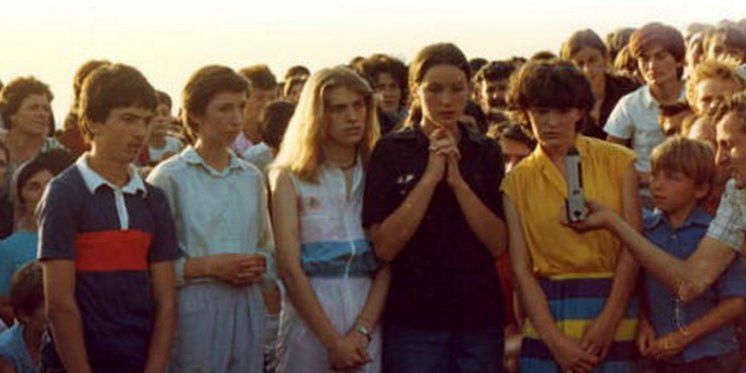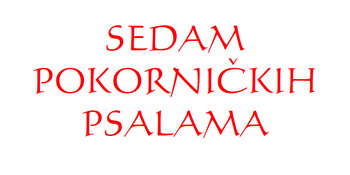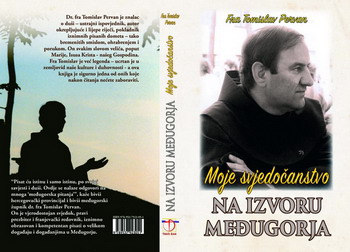He will not be engaged in verifying the authenticity of Our Lady's apparitions, whom six children (adults today), claim to see since 1981, and whom they refer to as "the Queen of Peace". His mission will be solemnly pastoral.
“The Holy Father is obliged to protect the devotion and faith of the many people who visit this small place in Bosnia and Herzegovina, to watch over them and to guide them. This is all going to be the center of the mission of Archbishop Hoser, explains Fr. Salvatore Perrella, the President of the Pontifical Theological Faculty of Marianum in Rome. He is a member of the Order of Friars Servants of Mary, Docent of Dogmatics and Mariology, a religious, who was also member of the International Commission founded by Benedict XVI for Medjugorje.
Perrella does not speak about the events, he knows well, as he says it is “with the purpose of respecting papal secrecy.” However, he explains, the role the Special Envoy of the Holy See is going to have. “Those who go there, he says, cannot simply be led by tourist agencies or be guided by one person from the Church. Pope Francis, in a special way, cares about the pastoral dimension of this place that attracts each year about 2 million ‘pilgrims’ from all over the world.”
“Here, we are encountering the phenomenon that has a worldwide dimension,” says Perrella. This is the case that deserves attention due to its complexity. “When the Polish Archbishop was appointed”, continues the Servant of Mary, “The Pope clearly sent a message that the pastoral dimension is not irrelevant and his wish is to protect the faithful.”
Hoser, 74-year old bishop of Warsaw – Praga, graduated as a doctor of medicine, he used to be a missionary in Africa, and Deputy Secretary of the Congregation for Evangelisation of People. His mission in Medjugorje will last until the summer. “In those months he will be observing, listening and noting the events there and then he will entrust all to the Holy Father. That does not imply that the Pope will make a statement about the authenticity of these apparitions. It was Benedict XVI, who wanted to establish a Commission for investigation of Medjugorje within the Congregation for the Doctrine of the Faith, and he clearly knew how the phenomenon of Medjugorje cannot be resolved with one “yes” or “no”. He then adds:
“ When it comes to the case of such great dimensions, it is good for the local bishop to have the support of the Holy Father through his Special Envoy.”
At the time when Archbishop Hoser was about to start his mission, the Bishop of Mostar – Duvno Diocese, Ratko Peric, of which, Medjugorje belongs to his Diocese, published on his Diocesean website, a notice in which he stated that “the apparitions of the Blessed Virgin Mary are not true”. “The statements of Bishop Peric are his personal opinion. This opinion is authoritative, as he is the local bishop, but it is still his personal opinion, especially if we would like to observe that out of the perspective of doctrinal teaching, of what obliges faithful to believe or not to believe”, states Fr. Matteo Roggio, missionary of Our Lady of Salette, Docent of Mariology at Marianum Theology Faculty and Docent of Dogmatics at the Catholic University of Rome. The author, along with Fr. Perrella, of the book “Apparizioni e mariofanie” is reminding us that “judgment about Medjugorje does not belong to the local bishop nor to the National Bishop’s Conference, but to the Congregation for the Doctrine of the Faith, and finally to the Holy Father who is the guarantee of honouring of Our Lady in the Church.
It was the bishops of the former Yugoslavia who asked for the intervention of the Holy See, that prompted Pope Benedict XVI, to establish the International Commission for investigation of Medjugorje in 2012. The Local Council of Bishops were divided, added Roggio. That should not be surprising, as this is the issue involving the basic dimensions of the faith. “The Papal Commission, with the President Cardinal Camillo Ruini, made up of 17 members, including cardinals, bishops, theologians and experts, completed their work on January 14, 2014, and according to Pope Francis “they did well”.
Medjugorje is a place that moves us by its spiritual fruits or perhaps by the “unusual” life of the so - called visionaries, for instance. “The course of history gives us one ideal of the visionaries, who all immediately after the apparitions, consecrated their lives to the Lord – notices this religious servant. Standard norms about those phenomenon published in 2012 by the Congregation for the Doctrine of the faith, do not tell us anything about the way of the life of so called visionary: what is important is that such person lives Christian life in his own time.” Pope Francis in his statements mentioned on several occasions “visionaries” related to so called revelations of Our Lady “Postmistress”. “Those words were part of a wider context about the Christian identity”, says Roggio. The faith does not depend on visions, but it depends on whether we choose Christ. For a number of years, pilgrims have been coming in greater numbers to Medjugorje. “The appointment of Archbishop Hoser confirms that the Pope trusts experiences of Christian people, concludes Docent. This is what we refer to as sensus fidelium – meaning – it is the ability of the people of God to recognise what comes from God, but also to recognise what does not come from the Lord“.







